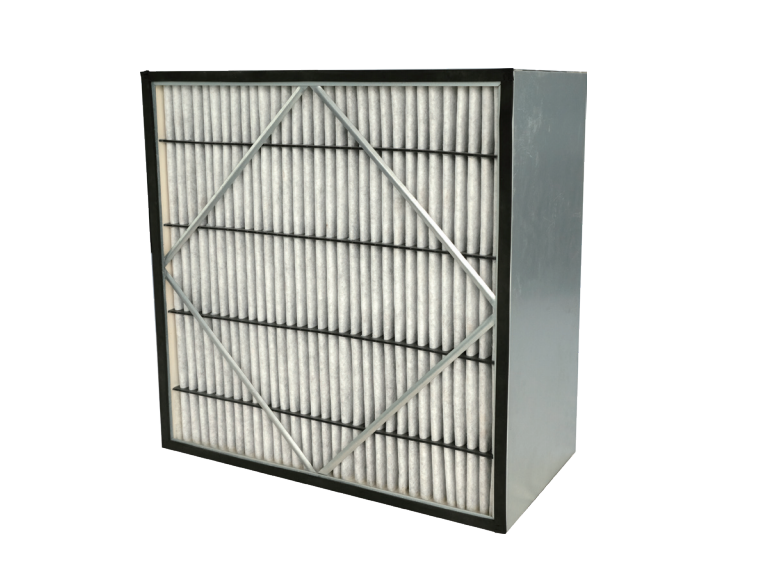Main performance indicators of chemical filters
- 2024-09-25
- 159
- Esky Purify
In high-end industrial fields such as electronic semiconductors, the control technology of gaseous molecular pollutants has received more and more attention and importance. Its main sources include harmful gases in the outdoor atmosphere, gases released by clean room building decoration and process materials, etc. These factors constitute a diverse and complex pollution source.
In order to effectively control gaseous molecular pollutants in the air, suitable chemical filters are needed to adsorb and remove these pollutants. The performance of the filter directly determines the removal efficiency of air pollutants, affecting the cleanliness level and air purification effect of the air filtration system.

?Main performance indicators of chemical filters?
1. Rated air volume
Rated air volume indicates the capacity of the filter to process air volume per unit time. The larger the rated air volume, the larger the size of the filter. Therefore, the rated air volume actually reflects the size of the filter, that is, the size of the space occupied by the installation.
2. Filtration rate
The lower the filtration rate, the longer the air stays in the adsorbent layer and the better the adsorption effect. It is necessary to ensure a certain filtration rate (residence time) and consider a certain air supply volume. This is related to the structure of the filter, the type, shape, particle size and other factors of the filter material.
3. Filter resistance--energy consumption
Filter resistance is an indicator of operating cost. Under a certain air volume, the pressure drop of the air flow on the filter is as small as possible. After the adsorbent is determined, the air volume, resistance and gas residence time in the filter material layer of the chemical filter should be comprehensively considered during the design. Under the premise of ensuring a certain filter material content, the most suitable material structure and filter structure should be used to obtain the lowest possible resistance to reduce energy consumption. Low resistance is particularly important for the huge return air system of the clean room.
4. Adsorption capacity
Adsorption capacity is an important indicator of the life of chemical filter materials. It refers to the total mass of pollutants adsorbed by the chemical filter material when the adsorption capacity reaches a certain rated filtration efficiency. The more the mass of the adsorbent, the greater the mass of pollutants that can be adsorbed. The better the adsorption performance of the adsorbent, the greater the mass of pollutants that can be adsorbed. The size of the adsorption capacity is related to the filter element area and the performance of the adsorbent itself.
5. Applicability
The chemical filter material must match the target pollutants to be removed in order to achieve a full purification effect.
Advanced chemical filtration technology
Achieve multi-dimensional pollution control and high-efficiency filtration
Solve air quality problems in an all-round way and help improve yield!
Chemical filters use advanced materials and technologies to ensure the efficient removal of gaseous molecular pollutants. They are available in many types to meet the filtering needs of various pollutants, helping companies optimize production processes, improve product yields, and solidly promote energy conservation, consumption reduction, and efficiency improvement.















 Home
Home Product
Product News
News phone
phone